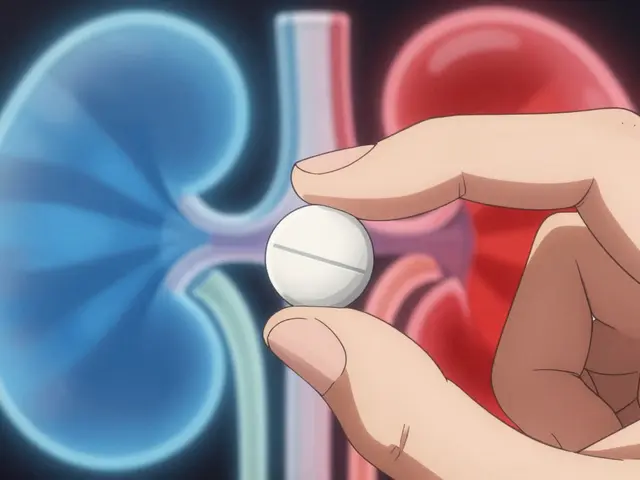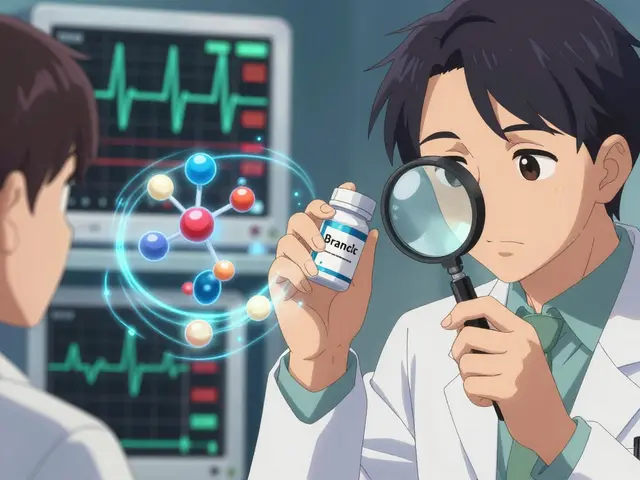Comorbidities: How Other Conditions Change Your Treatment
Ever noticed how one health problem can make another worse? That’s comorbidity — when two or more conditions occur together. For men, this matters because high blood pressure, diabetes, prostate issues, mental health, and infections often overlap and change which meds work best and which cause trouble.
Common comorbidity pairs men should watch
Some combinations show up a lot. Diabetes plus hypertension raises heart and kidney risk, so drug choices and doses change. Erectile dysfunction often links to circulation problems, stress, or medications — fixing lifestyle habits can help more than adding pills. Prostate issues and urinary infections can complicate antibiotic choice; if you can’t take one drug, there are clear alternatives. And when cancer or chronic stress is involved, inflammation and hormone changes can affect treatment side effects and recovery.
Why this matters: a med that treats one condition can make another worse. For example, some blood pressure meds need careful monitoring if you have asthma or diabetes. Antibiotics like ciprofloxacin have specific warnings for tendon or nerve issues. Even mental health meds can interact with heart drugs. Small details — kidney function, liver health, age, and other prescriptions — change the safe options.
Simple steps to manage comorbidities
1) Keep a single, up-to-date list of every medicine, supplement, and dose. Bring it to every appointment. Pharmacists catch interactions fast.
2) Share your full medical history, not just the main complaint. Tell your doctor about past allergic reactions, surgeries, and mental health so they can choose safer meds or adjust dosing.
3) Ask clear questions: “Will this affect my other condition?” “Do I need blood tests?” “Are there safer alternatives?” If a drug raises risk for your heart, liver, or kidneys, ask how often to check labs.
4) Watch for overlapping side effects. If two drugs cause dizziness or low blood pressure, you’ll notice balance problems. If multiple meds upset the gut, probiotics and timing can help — but check which strains and doses work during antibiotic therapy.
5) Focus on lifestyle changes that help multiple conditions: move more, sleep better, cut processed food, lower alcohol, and reduce stress. These steps improve blood pressure, sexual function, mood, and recovery from infections.
6) Use trusted sources for meds and advice. Some articles here cover safer options for specific needs — alternatives to common antibiotics or blood pressure drugs, tips for handling side effects, and when to seek financial help for costly prescriptions.
When to call your provider: sudden chest pain, breathlessness, severe dizziness, high fever, confusion, or signs of allergic reaction. For gradual issues like persistent fatigue or new side effects, schedule a review — small adjustments often fix things without stopping treatment.
Comorbidities change the plan, but they don’t make care impossible. With clear communication, smart questions, and simple lifestyle moves, you can pick treatments that work together and keep you healthy. Read the linked guides for specific drug alternatives, stress effects on cancer, and practical steps to manage meds safely.

Heart Failure and Kidney Disease: A Complicated Relationship
In a recent blog post, I explored the complex relationship between heart failure and kidney disease. It turns out that these two conditions often coexist, and can exacerbate each other's symptoms. The heart and kidneys are closely connected, as they both play a role in regulating blood pressure and maintaining overall health. As a result, when one is compromised, the other often suffers too. It's crucial for patients and healthcare providers to understand this connection in order to provide effective treatment plans and improve overall health outcomes.




